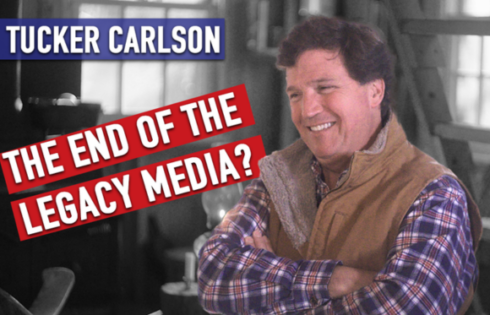
An adjunct professor of music technology at New York University and Montclair State believes it is “teaching whiteness” when music educators lean towards the classics over the more youth-“valued” hip hop.
Ethan Hein, also a doctoral fellow in music education at NYU, argues the decline in school music involvement isn’t just the result of budget cuts — it also involves the stubbornness of music teachers to continue teaching “European-descended” classical music over that of “music descending from the vernacular traditions of the African diaspora.”
Of course, any good teacher would be willing to take advantage of student interest in formulating lessons. Heck, just look at how Richard Dreyfuss’s title character adjusted in “Mr. Holland’s Opus,” after all.
However, if students are to learn about music (how to read it, play it, theory, etc.) does our modern computer technology — which, as Hein says, now makes it possible “for any music class to become a thriving producer collective” — really advance that goal?
Highly noted (black) composer/musician Wynton Marsalis would argue “no”:
“Listen, I don’t have to attack hip-hop. Hip-hop attacks itself. It has no merit, rhythmically, musically, lyrically. What is there to discuss?”
Flow? Rhymes? Assonance? Scansion? Lyrical dexterity? Rhythmic complexity? The use of samples that explore African-American musical history?
“Yeah yeah,” he snorts. “It’s mostly sung in triplets. So what? And as for sampling, it just shows you that the drummer has been replaced by a loop. The drum – the central instrument in African-American music, the sound of freedom – has been replaced by a repetitive loop. What does that tell you about hip-hop’s respect for African-American tradition?”
Regardless, Hein has some whitesplaining to do.
Citing numerous sociological and race-oriented sources, the adjunct says that to accommodate hip hop instruction, music educators will have to “reorient away from large ensembles and toward small ad hoc peer groups, from performance to production, from the Western canon to the social dance music of the present, and from top-down authority to bottom-up collaboration.”
Classically trained university faculty (who are, get this — “unsurprisingly oriented toward the classical tradition”) tend to listen for “affirmations of Whiteness,” Hein says. In addition, the inherently “nice” nature of music teachers “makes the implicit racial ideology” of music education even more “insidious.”
“Eurocentric music education is the product of racism without racists,” he continues. “Rather than scrutinizing individual attitudes, then, we need to interrogate the culture of power in the music classroom. That power remains almost entirely in the hands of the Western ‘art’ music tradition.”
While overt racism is no longer socially acceptable, the institutional structures and vocabulary terms created during a racist era survive intact into the present […] White music educators of the present day do not need to be racist in order to benefit from the centering of their culture in the curriculum. “Whiteness maintains power and privilege by perpetuating and legitimating the status quo while simultaneously maintaining a veneer of neutrality, equality, and compassion” (Castagno 2014, 5). To preserve white privilege, it is not necessary to be hateful; passivity and conflict aversion are sufficient. …
We can not advance democracy in the music classroom if we systematically marginalize Afrological musics. It is not simply a matter of boring or alienating students of color, but of attacking their sense of belonging to the school community at all. “It is counterproductive to our notion of critical literacy and multiculturalism to have students believe that any aspect of their language or culture is inferior and unintelligent” (McCrary 2005, 89-90). The seemingly neutral act of teaching music the way it was taught in the past therefore enacts symbolic violence against students of color. “Music teachers, simply in attempting to teach the district curriculum and affirm the truth of ‘good music,’ challenge the legitimacy of their students’ deeply felt musical experiences and therefore—whether they intend to or not—begin from the position of a threat” (Cavicchi 2009, 100) […] In the face of a school culture that does not value their musicality, it is only too understandable that so many young people come to believe that they are simply unmusical.
Hein concludes “We will not advance social justice by expanding the school music canon to include a greater diversity of musics unless we challenge the reason for the canon’s existence in the first place.”
“If we ‘use the tools of a racist patriarchy to examine the fruits of that same patriarchy,’” not much will change. “Rather than making incremental curriculum changes, we must ask how we can re-orient the mission, values and goals of music education away from the preservation of whiteness.”
MORE: Music teacher sues principals for calling her music choice ‘racist’
MORE: HS band: We’re only buying music by composers of color
IMAGE: Shutterstock.com
Like The College Fix on Facebook / Follow us on Twitter






Please join the conversation about our stories on Facebook, Twitter, Instagram, Reddit, MeWe, Rumble, Gab, Minds and Gettr.